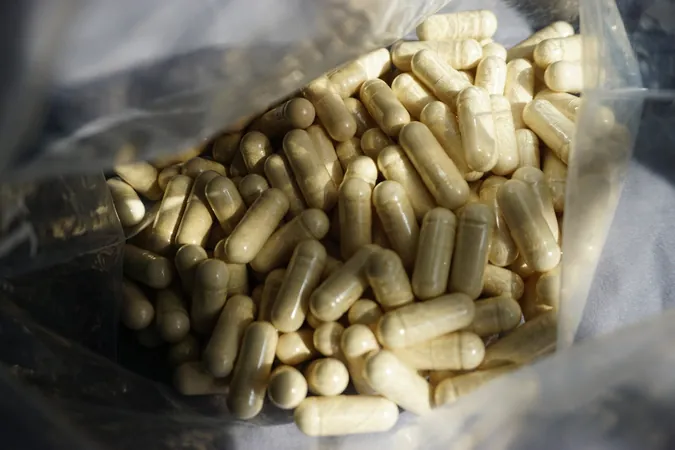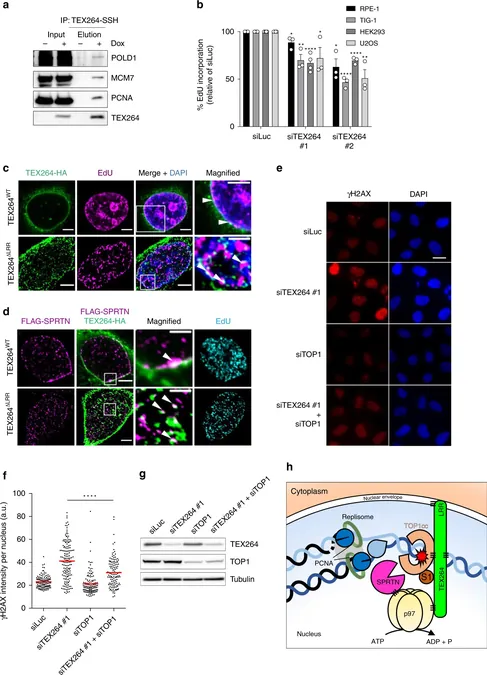
Shocking Discovery: Many Prenatal Supplements Fail to Deliver Essential Nutrients!
2024-11-21
Author: Rajesh
New research has unveiled a startling truth about prenatal vitamins: a significant number lack adequate amounts of essential nutrients crucial for a healthy pregnancy, while some contain alarming levels of toxic metals. This revelation, published in *The American Journal of Clinical Nutrition*, is causing concern among expectant mothers and healthcare professionals alike.
The study, led by Laura Borgelt, PharmD, MBA, a professor at the University of Colorado Skaggs School of Pharmacy and Pharmaceutical Sciences, assessed both nonprescription and prescription prenatal vitamins for their choline and iodine content, while also evaluating their safety concerning toxic metals like arsenic, lead, and cadmium.
Pregnant women often depend on prenatal vitamins to support their health and the development of their babies. However, Borgelt warns, "Some prenatal vitamins may not contain the exact amounts listed on the label, and some may not provide any choline or iodine at all." This raises significant concerns about the adequacy of prenatal nutrition during this vital period.
In their rigorous analysis, researchers evaluated a selection of 47 different prenatal vitamins—32 nonprescription and 15 prescription—from both online and brick-and-mortar stores. Their lab tests revealed disturbingly low levels of choline and iodine compared to the amounts claimed on the labels. They also discovered concerning levels of toxic metals, highlighting the urgent need for the FDA to step in and enforce stricter regulations.
What You Need to Know About Choline and Iodine
Recommended Intakes: According to the Food and Nutrition Board of the Institute of Medicine, pregnant women should consume 450 mg of choline daily, which increases to 550 mg during lactation. For iodine, the recommendations are 220 mcg/day during pregnancy and 290 mcg/day while breastfeeding.
The Findings: Of the prenatal vitamins tested, choline was absent from the labels of most products, with only 12 listing any choline content at all. Out of these, only 42% contained the promised amount. Iodine was similarly lacking, with 53% of products listing iodine content; however, only a mere 16% actually contained the claimed amount.
Heavy Metals: A Hidden Danger
Even more concerning, certain prenatal products contained heavy metals exceeding acceptable purity limits set by the United States Pharmacopeia, with seven products showing elevated arsenic levels, two with excessive lead, and 13 with high levels of cadmium. Exposure to these heavy metals during pregnancy has been linked to serious adverse birth outcomes, making this an alarming finding for health advocates.
Borgelt notes, "Our findings highlight a significant gap between what’s listed on the labels and what’s actually in the products." With many women relying on prenatal supplements for vital nutrition, the results call for heightened regulatory oversight in the supplement industry.
What Should Expecting Mothers Do?
While the evidence shows a clear need for better regulation and oversight in the prenatal supplement market, Borgelt emphasizes the importance of continuing to take these supplements, given their potential benefits. Pregnant women are urged to be vigilant about ingredient labels and consider consulting with healthcare professionals to select the safest and most effective prenatal supplements.
In conclusion, as researchers continue to shine a light on the inadequacies of prenatal vitamins, expectant mothers must take proactive measures to ensure they are receiving the essential nutrients necessary for their own health as well as that of their growing babies.
Don't overlook your prenatal health—your baby’s future might depend on it!





 Brasil (PT)
Brasil (PT)
 Canada (EN)
Canada (EN)
 Chile (ES)
Chile (ES)
 España (ES)
España (ES)
 France (FR)
France (FR)
 Hong Kong (EN)
Hong Kong (EN)
 Italia (IT)
Italia (IT)
 日本 (JA)
日本 (JA)
 Magyarország (HU)
Magyarország (HU)
 Norge (NO)
Norge (NO)
 Polska (PL)
Polska (PL)
 Schweiz (DE)
Schweiz (DE)
 Singapore (EN)
Singapore (EN)
 Sverige (SV)
Sverige (SV)
 Suomi (FI)
Suomi (FI)
 Türkiye (TR)
Türkiye (TR)